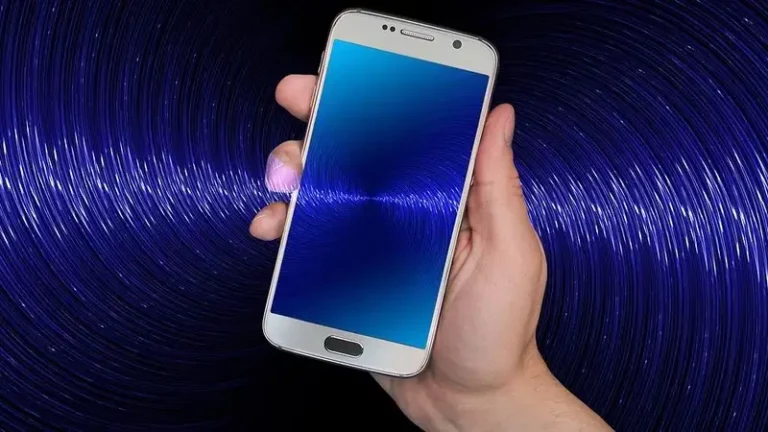Are Bluetooth Headphones Dangerous? (Explained)
This site contains affiliate links to products, and we may receive a commission for purchases made through these links.
When it comes to modern electronic devices, there’s a lot of uncertainty online. Should you upgrade your device? Are Bluetooth headphones safe?
If the only thing stopping you from making the shift to Bluetooth devices is that they might be injurious to your health, you’ve come to the right place. I’m going to give you all the information you need on the subject.
READ MORE: Top 10 Best Bluetooth Headphones with Noise Cancelling (2021)

Are Bluetooth Headphones safe?
Bluetooth devices are making advancements by the day, with information on their short and long-term effects evolving by the hour.
Yet statistics show a growing trend and increasing popularity with Bluetooth headsets.
Whether it’s your Bluetooth headsets, Bluetooth headphones, or Bluetooth earbuds, wireless technology is on the rise. But like with all technology, we must consider the effect of our Bluetooth devices on our body.
After all, if current trends in Bluetooth technology show us anything, it’s that Bluetooth devices are here to stay.
Do you find yourself using Bluetooth headsets regularly? How do the Bluetooth headphones you use for music or podcasts even work? And can these devices harm your health?
Switching to wireless devices may free you from tangled wires, but the ease of use isn’t enough.
To answer the question, are Bluetooth headphones safe? This article will address all the reservations about Bluetooth headphones, from potential radiation exposure to their long-term impact on human health.
How do Bluetooth cell phones work?
Wired headphones are becoming a thing of the past; there’s no doubt about that. But before we start excessively using hands-free devices, we need to understand how they function.
With wired cables, it’s intuitive that the information is being carried through the wires.
Simply put, wireless devices such as your Bluetooth headphones emit radiation that carries that information from your cell phone to your hands-free device. The technology is very similar to that used in your WiFi connection.
The radiation used in Bluetooth technology uses low wavelength, relatively high energy microwave radiation.
That’s where organizations like the World Health Organisation raise concerns regarding the safety of the human body.
They claim that such technology that uses emf radiation and creates electromagnetic radiation can, upon exposure, pierce the human DNA, causing health issues like cancer.
EMF Radiation
You might be wondering what emf Radiations are and whether they are really that harmful to your health.
Before we can explore the effects of emf radiations and electromagnetic fields on human health, we need to understand what emf radiations are in the first place.
Let’s see what the scientists and professionals have to say.
What are they?
Essentially, electromagnetic fields are areas of energy that can not be seen by the naked eye. These energies travel at frequencies beyond the visible spectrum.
Hence your cell phone and Bluetooth headsets appear to be connected by an invisible string.
In the case of Bluetooth devices, the emf waves are low-energy radio waves that are considered to be safe for the human body.
Non-Ionizing Radiations
You don’t need to have a chemistry major to have a working understanding of how ionizing radiations work.
These are the type of radiation that is primarily used in everyday use devices like your microwave radiation and your Bluetooth headset.
If the emf radiation has sufficient energy, it can push the electrons out of the atom, leaving behind an ion.
The Non-Ionizing radiations don’t possess enough energy to do this and are therefore unable to cause Ionization -hence the name.
Ionizing Radiations
Unlike Non-Ionizing Radiations, if there is enough energy, the radiation can remove the electron from an atom, leaving behind an ion.
This effect of this type of radiation is called Ionization.
Do they really harm you?
Emf radiations and health effects are a heated debate.
One side strongly believes that emf radiations are associated with cancerous diseases, birth defects, and sleep anxiety, among other issues.
Others claim that the correlation between health risks and Bluetooth headsets is simply false.
Among the variety of accusations thrown around over the effects of radiation exposure from Bluetooth headphones, it’s hard to answer the question, are Bluetooth headphones safe?
So let’s walk through what each side has to say and check for ourselves whether the emf radiations pose health risks.
The side that says yes
From Professor Jerry Philips of the University of Colorado, at colorado springs, to the workers at World Health Organization, there are many credible people raising concerns over long-term Bluetooth exposure.
They call for greater safety precautions and regulations over the use of emf radiations in technology that people use on a daily basis.
There was even an appeal in the United Nations in 2015 where 247 scientists and 43 countries raised concerns over long-term exposure to emf radiations to health problems.
One of the biggest concerns lies in the fact that the research on emf radiations has little to do with the safety element, especially against the possible long-term effects of exposure.
One of the main focuses of this concern has been on the effect of emf radiation on the brain. Because the head is the main recipient of the sound signal, it makes sense.
The logic behind these concerns is not unfounded either.
The University of Colorado professor mentioned earlier argues that AirPods use a relatively high-frequency radio wave to function.
He argues that because you will have the AirPods in your ear, these high-frequency radiations will directly enter your ear canal, thus exposing your head tissues to an unhealthy level of radiation.
On the matter of non-ionizing radiations, the ones that are used in Bluetooth technology, more research needs to be done, particularly on the long term effects of exposure. Some studies that are often cited are the following:
1. 2018 research at the National Toxicology Program:
Exposure to emf radiations used in 2G and 3G technology lead to cancer in rats.
2. International Agency for research on cancer
In 2011 the program categorized low level radiation as one that induces cancer, i.e., can act as a carcinogen. They based this categorization on risks associated with glioma, a cancer of the brain associated with cell phones.
3. National Institute of Environmental Health Sciences
The EMF Working Group considers EMF as a potential carcinogen because of its possible effects on newborns. They argue that technology that uses electromagnetic radiation is associated with childhood leukemia and brain tumors.
Some even go ahead and suggest that the Bluetooth and wireless technology industry has enough money to funnel into research and underplay how dangerous emf radiations are.
The ones that say no
Those who deny that Bluetooth headsets have health risks argue that this technology has been around for such a long time that there’s no point in showing reluctance to using it.
The amount of radiation that Bluetooth headphones emit is specifically designed to avoid any harmful effects. The non-ionizing radiation is low frequency, which inhibits how harmful it is to your DNA.
Research and studies certainly go both ways on this topic as it does with most other topics.
People who argue against the harmful effects of Bluetooth technology have their own share of research papers and studies. Here are some of the more prevalent ones:
1. Food and Drug Administration (FDA):
The American Cancer Society compiled a list of different researches carried out on the issue of emf radiations and their potential health effects. One of the studies they specified was that of the FDA. They concluded that there is little correlation between the studies that set out to show a correlation between radio waves from cell phones and other devices and health issues that were flawed and failed.
2. Centre for Disease Control and prevention
Another reliable source cited by the American Cancer Society was the Centre for disease control and prevention. This study is slightly different such that it concludes that the current data is insufficient in determining whether a link exists or not.
3. Federal Communication Commission
The Federal Communication Commission also believes that there is no science behind the link that connects wireless devices to cancers, memory loss, and dizziness.
Bluetooth radiation isn’t even the biggest form of radiation we surround ourselves with.
Other devices like our cell phones also use radio signals to enable us to call around the world. If we are so comfortable with that type of wireless connection, then what’s the concern?
In fact, some even go so far as to argue that the advent of Bluetooth has had a positive effect on the human body.
The argument goes something like this: Your cell phone has to directly connect to the grid first when you are calling someone. The radio waves radiations emitted from your need to be very strong to travel that distance.
Hence if you use a Bluetooth headset, your phone isn’t directly connected to your ear canal.
Instead, the Bluetooth radiations that have to connect to your phone aren’t nearly as strong. The radiation emitted from your phone is maybe 1000 times stronger!
Final Verdict
So what’s the final takeaway from all this? Are Bluetooth headphones safe for listening to music and podcasts?
Is the exposure to radiation too much for your safety?
You might have more questions about wireless technology than you came with.
But there is a middle ground.
More scientists need to get involved with wireless technology and Bluetooth headsets. Research into different devices like AirPods and class 2 Bluetooth can also help determine if some devices are safer than others.
Further research on non-ionizing radiation emitted by Bluetooth headsets and how much exposure to radiation causes health problems needs to be done.
How to stay on the safe side when you use Bluetooth headsets
Whether or not Bluetooth headsets and headphones emit radiation that causes health problems needs more research.
But that doesn’t mean you go back to wired headphones or switch to a radiation-free life.
Nor does this mean you put your body in harm’s way.
There are safety precautions you can take to minimize exposure to radiation.
Should you use your Bluetooth headphones for calls?
Compared to your cell phone radiation, which sends radiofrequency radiation to cell towers, wireless Bluetooth is a much safer option.
Even before wireless headphones, scientists recommended using wired headphones when calling on your cell phone.
Putting your phone up against your ear causes radiation exposure to your head.
The Air Tube Anti-Radiation Headset
Your best defense against radiation is not going back to radiation-free time but fighting off radiation.
The new solution to avoid health risks are the Air tube headphones.
How do Air tubes work?
From the outside, Air tube headphones might seem like normal wired headphones to you: Both the devices have a wire cord that has a connector to plug into your phone. Both have wires that split into two, one for each ear.
But what sets Air tubes apart is the mechanics of transmitting sound signals.
Air tubes transmit the sound signal using a metal wire up to a point.
After this, the metal wire is removed, and instead, a hollow tube is present. The sound signal now travels the length of this tube before entering your head.
What most people fail to understand is that even wired headphones emit radiation to a lesser extent along with the sound signal.
By sending the signal through a hollow tube, there is less radiation being transmitted.
Do air tubes lower sound quality?
Think about listening to music or podcasts on-air tubes like a speaker.
Sound is traveling through the air in both cases. An air tube is concentrated to your ear. So you will compromise on sound quality with this device, but that gap is unavoidable.
You have to weigh up if the risk from using a headset is worth it.
Conclusion
In conclusion, Bluetooth headphones may be taking the world by storm, but we have to be responsible for our interactions with radiation.
From the professors at the University of Colorado to the people in FDA, different science seems to support a different conclusion.
It’s safe to say that it’s too early to determine which side to believe.
But like with everything, you can use safety precautions to steer clear of the harms of wireless headphones while enjoying your favorite audio content.

Espen
Espen is the Director of ProPairing and has written extensively about Bluetooth devices for years. He is a consumer product expert and has personally tested Bluetooth devices for the last decade.






